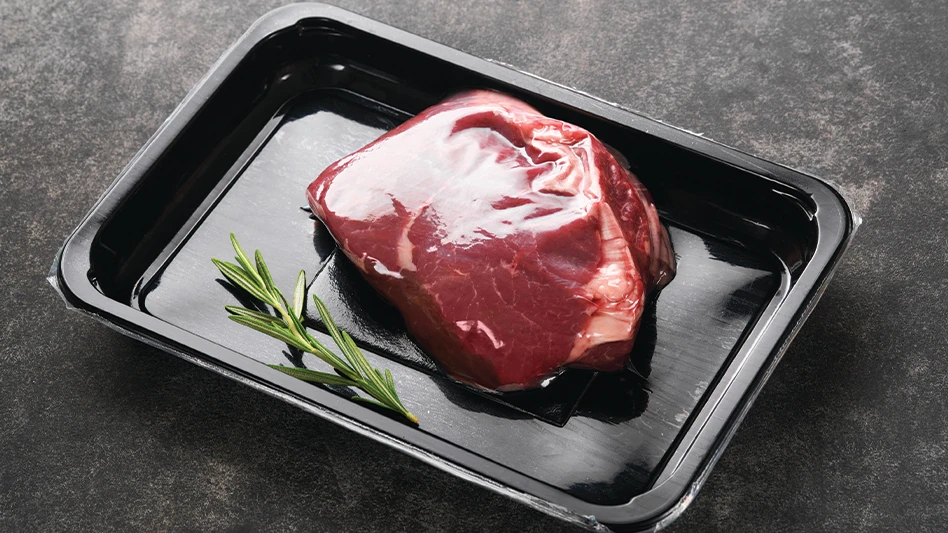
Photo courtesy of Aimplas
Spain-based Aimplas, the Plastics Technology Centre, Covinil and Eroski have partnered to launch the Bottle4Flex project to develop 100 percent recyclable flexible skinpack packaging using recycled polyethylene terephthalate (rPET).
Covinil is a Spain-based manufacturer of PET UPVC (polyvinyl chloride without plasticizer) and cast polypropylene (CPP) films. Also headquartered in Spain, Eroski is a supermarket chain with nearly 1,000 outlets spread across the country.
The collaboration is a response to the European Union’s Circular Economy Strategy, which stipulates that all plastic packaging in the EU must be 100 percent recyclable by 2030. According to Aimplas, one current challenge is the restriction on the use of recycled materials in food packaging to guarantee food safety. In Spain, for example, the company says only rPET has been authorized for postconsumer recycled content for food packaging and, additionally, flexible PET packaging cannot be recycled using mechanical processes because of its multilayer composition.
Aimplas says skinpack creates an invisible “second skin” around the product that allows consumers to examine its quality, improving the shopping experience with three-dimensional presentation and easy opening.
“This type of packaging is attractive to consumers due to the premium product appearance and to producers and distributors for its cost-effectiveness and flexibility,” Aimplas says. “However, despite its popularity and efficiency in terms of space and transport, this multilayer packaging faces serious difficulties for recycling.”
Through advances in chemical recycling and polymerization technologies, the project consortium says it aims to overcome the challenges of recycling multilayer PET flexible packaging and promote sustainability and the efficient use of recycled materials in the food industry. The project is funded by Spain’s Ministry of Science, Innovation and Universities and the European Union through Next Generation funds within the framework of the Recovery, Transformation and Resilience Plan.
“In order to comply with the EU’s Circular Economy Strategy, it is crucial to carry out research and develop single-material film based on rPET,” Aimplas says. “This material is widely used in trays and is currently the only one recycled in Spain, primarily for rigid packaging due to high demand that exceeds supply. This makes it necessary to develop new recycling and circularity systems for packaging waste to ensure the film’s high flexibility, barrier properties and heat-sealing capacity.”
Aimplas says the Bottle4Flex project focuses on promoting solvolysis processes for recycling and to modify the properties of PET through partial depolymerization. It also seeks to make use of technologies such as reactive extrusion, as well as monomers and additives to increase the flexibility of rPET. Aimplas says the goal is to develop efficient, sustainable methods that promote the circularity of plastics and lead to new circular production models.
Latest from Recycling Today
- BMW Group, Encory launch 'direct recycling’ of batteries
- Loom Carbon, RTI International partner to scale textile recycling technology
- Goodwill Industries of West Michigan, American Glass Mosaics partner to divert glass from landfill
- CARI forms federal advocacy partnership
- Monthly packaging papers shipments down in November
- STEEL Act aims to enhance trade enforcement to prevent dumping of steel in the US
- San Francisco schools introduce compostable lunch trays
- Aduro graduates from Shell GameChanger program





